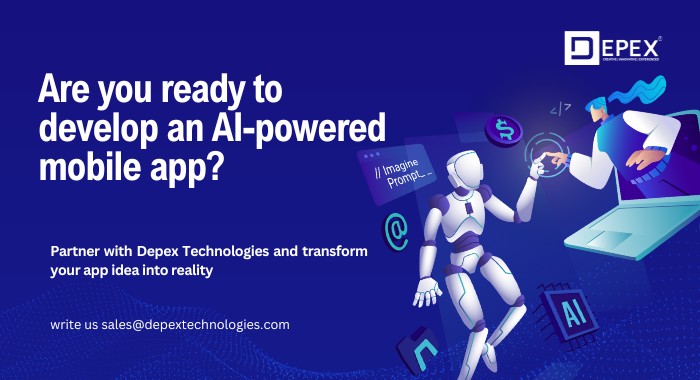The Pros and Cons of AI in Mobile App Development
Artificial Intelligence (AI) is transforming mobile app development, making apps smarter, more interactive, and capable of delivering personalized experiences. From AI-powered chatbots to advanced data analytics, AI plays a significant role in enhancing user engagement and app functionality. However, despite its numerous advantages, AI also presents certain challenges that developers must consider.
In this blog, we will explore the pros and cons of AI in mobile app development, helping businesses and developers make informed decisions when integrating AI into their applications.
Pros of AI in Mobile App Development
1. Enhanced User Experience
AI enables mobile apps to deliver highly personalized experiences by analyzing user behavior, preferences, and interactions. AI-driven recommendation engines, such as those used in streaming and shopping apps, suggest content and products based on user interests.
2. Improved App Performance with Automation
AI helps automate various tasks, such as predictive text, voice recognition, and real-time translations. AI-powered automation reduces manual intervention and enhances app efficiency, making the user experience smoother and more intuitive.
3. Intelligent Chatbots and Virtual Assistants
AI-driven chatbots and virtual assistants, like Siri and Google Assistant, provide instant responses to user queries. Businesses can integrate AI chatbots into customer support apps to offer 24/7 assistance, reducing the need for human agents and improving customer satisfaction.
4. Advanced Security Features
AI enhances app security through biometric authentication (facial recognition, fingerprint scanning) and fraud detection mechanisms. AI algorithms can detect unusual behavior patterns and prevent security breaches, making mobile apps safer.
5. Predictive Analytics for Better Decision-Making
AI-powered predictive analytics helps businesses make data-driven decisions. For example, AI in mobile healthcare apps can analyze patient data to predict potential health risks, while AI in e-commerce apps can forecast sales trends and customer preferences.
6. Efficient App Development Process
AI assists developers by automating code generation, identifying bugs, and optimizing app performance. AI-powered tools like TensorFlow and Google’s AutoML help developers build and deploy AI models without extensive coding knowledge.
7. Voice and Image Recognition Capabilities
With AI, mobile apps can integrate voice and image recognition technologies. Features like voice commands, face recognition unlock, and AR-powered applications are becoming standard in mobile development.
Cons of AI in Mobile App Development
1. High Development Costs
Integrating AI into mobile apps requires specialized knowledge, resources, and advanced technologies, which can significantly increase development costs. Small businesses may find it challenging to afford AI implementation.
2. Complexity in Implementation
AI models require extensive training and fine-tuning to deliver accurate results. Developers must work with vast amounts of data, which can be time-consuming and complicated.
3. Data Privacy and Security Concerns
AI-driven apps collect and analyze user data to improve functionality. However, storing and processing sensitive information raises privacy concerns. Developers must implement robust data protection measures to comply with regulations like GDPR and CCPA.
4. Risk of AI Bias
AI algorithms rely on historical data, which can sometimes be biased. If the training data lacks diversity, the AI model may produce inaccurate or unfair results, affecting the user experience.
5. Dependency on Internet Connectivity
Many AI-powered apps require continuous internet access to function efficiently. Apps relying on cloud-based AI models may face performance issues in areas with poor network connectivity.
6. Limited Creativity and Human Touch
AI can automate tasks but lacks human creativity and emotional intelligence. For example, AI-generated content may not always match human-created designs or storytelling elements in apps.
7. Continuous Monitoring and Updates
AI models must be regularly updated and monitored to ensure accuracy and efficiency. Maintenance can be time-intensive, requiring continuous investment in AI training and optimization.
How Depex Technologies Can Help You Leverage AI in Mobile Apps
At Depex Technologies, we specialize in integrating AI-driven solutions into mobile apps to enhance user engagement, streamline operations, and boost business growth. Whether you need AI-powered chatbots, predictive analytics, or automated workflows, our expert developers ensure seamless AI implementation tailored to your business needs.
Why Choose Depex Technologies?
- Expertise in AI-powered mobile app development
- Customized AI solutions to meet your business goals
- Secure and scalable AI implementations
- Continuous support and updates for AI-driven apps
If you’re looking to integrate AI into your mobile app, contact Depex Technologies today.
Final Conclusion
AI has revolutionized mobile app development, offering numerous advantages such as automation, personalization, and enhanced security. However, it also comes with challenges like high development costs, privacy concerns, and implementation complexity.

By carefully weighing the pros and cons, businesses can make informed decisions about AI integration. With the right strategy and expertise, AI can unlock endless possibilities for mobile applications.






